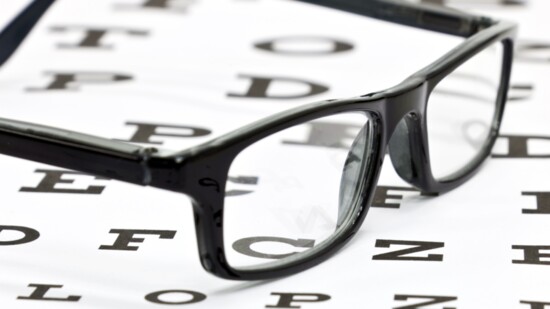Allen Eyecare Center is a cornerstone of our community, celebrating 40 incredible years of service in 2025. Founded by Dr. Jeffery Wood, the practice has grown into a family legacy. Now led by his son, Dr. Brooks, Allen Eyecare Center continues to innovate and set the standard for exceptional eye care.
Dr. Brooks Wood wears many hats. By day, he revolutionizes dry eye treatments as a dedicated optometrist; by night, he's a force to be reckoned with in fantasy football. He's also a die-hard fan of Dallas sports teams—the Rangers and Cowboys—even though the Cowboys seem determined to test his loyalty this season. Outside of the office, he's a family man deeply involved with Revolution Church in McKinney. He also founded Texas' first urgent care center for eyes, aptly named Urgent Eyecare, which provides after-hours and same-day eye care for emergencies like infections, injuries, and sudden vision changes.
We recently sat down with Dr. Brooks to discuss some common misconceptions about eye health. Here's what he had to say:
Q: Dr. Brooks, let's jump right in. What's one of the biggest myths about eye health you hear from patients?
Dr. Brooks: The myth I often hear is, "If I can see fine, I don't need an eye exam." It's an understandable belief, but vision is just one part of eye health. Many severe conditions, like glaucoma or macular degeneration, don't show symptoms until significant damage has already occurred. Regular eye exams are critical because they allow us to catch and treat these issues early.
Q: Another common myth is that staring at a screen all day will ruin your eyes. What's the truth?
Dr. Brooks: This is a loaded question. At all ages, staring at screens reduces blinking, resulting in digital eye strain. Increased screen time can also lead to early myopia in kids and teenagers. This nearsightedness epidemic is why we've implemented a myopia management program at Allen Eyecare Center. Myopia management is life-changing for kids, preventing high prescriptions in adulthood. High prescriptions are expensive long-term, impact quality of life, and increase the risk of retinal detachments. Simple habits—like following the 20-20-20 rule (look at something 20 feet away for 20 seconds every 20 minutes)—can make a huge difference.
Q: Let's talk about dry eye. It's becoming more common. Why is that, and how is Allen Eyecare Center helping?
Dr. Brooks: You're right—dry eye is rising, partly because of increased screen time and environmental factors. We've invested in state-of-the-art technology like IPL (intense pulsed light) and radio frequency treatments. These are game-changers for dry eye sufferers, addressing the root cause rather than just masking symptoms.
Q: IPL and radio frequency sound futuristic! What are the benefits?
Dr. Brooks: They're incredible tools. IPL and radio frequency reduce inflammation and clear blockages in the meibomian glands, often the culprits behind dry eye. Plus, they offer aesthetic benefits, such as rebuilding collagen, evening pigmentation, and reducing fine lines and wrinkles. Patients love that they're not just treating dry eye but also seeing cosmetic improvements.
Q: Many people believe wearing glasses makes your eyes weaker. What's the truth?
Dr. Brooks: This is a big one! Wearing glasses doesn't weaken your eyes—they reduce visual noise and optimize performance. Your prescription may change over time due to age or other factors, but that's unrelated to wearing glasses. Since almost 50% of our brain is dedicated to interpreting vision, wearing glasses prevents unnecessary strain and stress.
Q: What about the idea that eating carrots will give you perfect vision?
Dr. Brooks: Carrots contain vitamin A, which is essential for eye health, but they won't give you superhuman night vision or correct vision problems. It's more about maintaining a balanced diet rich in nutrients like omega-3s, lutein, and zeaxanthin.
Q: Is reading in the dark bad for your eyes?
Dr. Brooks: Reading in dim light won't permanently damage your eyes, but it can cause temporary discomfort or strain. Your eyes work harder to focus in low light, making them feel tired, but it won't harm your vision.
Q: What's the truth about sitting too close to the TV?
Dr. Brooks: Another classic myth! Sitting close to the TV won't ruin your eyes, but it might cause eye strain, especially if you watch for long periods. It could also be a sign that kids are nearsighted, so it's worth checking their eyes.
Q: Are there any other surprising myths you want to debunk?
Dr. Brooks: Yes! Many people believe contact lenses can get "lost" behind your eye. Don't worry—that's physically impossible! There's a membrane that prevents anything from going behind your eyeball. Another myth is that only older adults need to worry about eye health. Conditions like dry eye or early stages of glaucoma can affect people of all ages, so staying proactive is important.
Dr. Brooks and the team at Allen Eyecare Center are passionate about educating patients and providing cutting-edge care. Whether you need a routine checkup, advanced dry eye treatment, or advice on fantasy football (be warned, he's a tough competitor), Dr. Brooks is here to help.
For appointments or more information, visit www.alleneyecarecenter.com or call or text (972) 727-5171.
Use on page 4: Dr. Brooks may not be able to fix the Cowboys' season, but he can certainly care for your eyes!
Use on page 6: With 40 years of trusted service and innovation, Allen Eyecare Center is more than an eye care provider—it’s a family legacy dedicated to the community's well-being.
